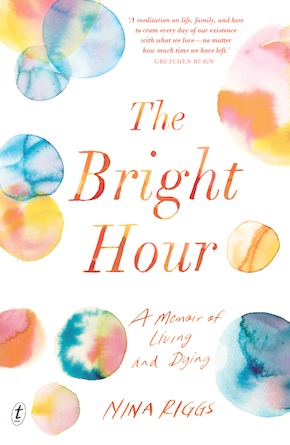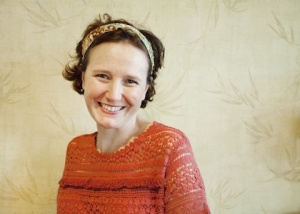Suspicious country
by Nina Riggs
“A thoughtful and heartbreaking exploration of what makes life meaningful in a person’s remaining days.” USA Today
Right after the diagnosis, I find it nearly impossible to read. I can’t think clearly, and I don’t have the patience for the development of other people’s ideas and images.
“Yeah, I had that, too,” my mom says when I mention it to her. “I did a lot of staring at the wall. And I watched every single episode of NCIS. It’s kind of like having a baby. Don’t worry – you’ll get back to it.”
I remember a Christmas several years back when she was feeling very ill and directionless, and we spent a chilly weekend at the beach reading and discussing a biography of Michel de Montaigne.
It left her on more solid ground. I pull out my old graduate school copy of the Montaigne Essays and start to read. In one of my favorite essays he writes about his brother’s sudden death at age twenty-three after being hit in the head by a tennis ball:
He did not sit down or rest, but five or six hours later he died of apoplexy caused by the blow.
With such frequent, common examples passing before our eyes, how can we possibly get rid of the thought of death; how can it not seem at every moment to be gripping us by the throat?
Montaigne came to know death well during his life in sixteenth-century France: the loss of five of his six daughters in childhood, the sudden demise of his closest friend in his arms at the hands of the plague, a lifetime of debilitating kidney stone attacks.
It is a continual source of torment that cannot be assuaged at all. There is no place from which it may not come; we may keep turning our heads ceaselessly this way and that, as in suspicious country.
Suspicious country – I’m beginning to know that place.
Certainly, it is the far better name for a boutique in town called A Special Place Wigs: a chemo/hair loss specialty shop full of hats, bright scarves, wigs, appeasing creams, even sad little yellowing packets of eyebrow pairs shaped of human hair.
Katrine, the stylist, shaved off what was left of my hair in a back room and helped fit me for my wig. Tita took lots of pictures and we laughed and laughed.”
The first time I went there, I opened the door gripping a paper prescription from my oncologist that said “head prosthesis”. In my postdiagnosis haze, I had thrown out the first one she gave me, thinking: Oh, this must be for someone else. I haven’t lost my head.
Katrine, the stylist, shaved off what was left of my hair in a back room and helped fit me for my wig. Tita took lots of pictures and we laughed and laughed.
Montaigne writes: “When a horse stumbles, a roof tile falls, however slightly a pin pricks, let us immediately ruminate on this: ‘So, what if this were death itself?’”
When the scissors’ snips are brusque and sudden. When the clippers buzz on. When your new hair emerges sleek and orderly from a shoebox.
I love about Montaigne that, despite roving bands of thieves and constant political upheaval, he reportedly never kept his castle guarded. He left all his doors unlocked. He acknowledged the terror that could come. But by considering it and allowing it in, he resolved to live with its presence: “I want death to find me planting my cabbages, not concerned about it or – still less – my unfinished garden.”
My wig smells toxic and makes me feel like a bank robber. But maybe it is just a cloak for riding out into suspicious country.
From The Bright Hour: A Memoir of Living and Dying (Text Publishing, £12.99)
 Nina Riggs received her MFA in poetry in 2004 and published a book of poems, Lucky, Lucky, in 2009. She wrote about life with metastatic breast cancer on her blog, Suspicious Country until her death in February 2017. Her recent work also appeared in the Washington Post and the New York Times. She lived with her husband and sons and dogs in Greensboro, North Carolina. The Bright Hour is out now from Text Publishing.
Nina Riggs received her MFA in poetry in 2004 and published a book of poems, Lucky, Lucky, in 2009. She wrote about life with metastatic breast cancer on her blog, Suspicious Country until her death in February 2017. Her recent work also appeared in the Washington Post and the New York Times. She lived with her husband and sons and dogs in Greensboro, North Carolina. The Bright Hour is out now from Text Publishing.
Read more
suspiciouscountry.wordpress.com
Author portrait © Toni Tronu

